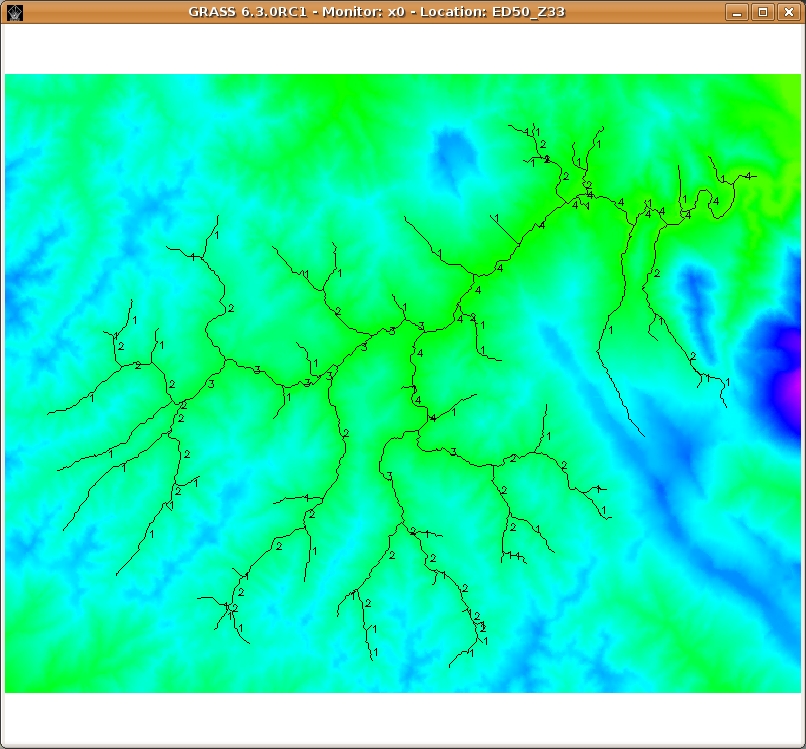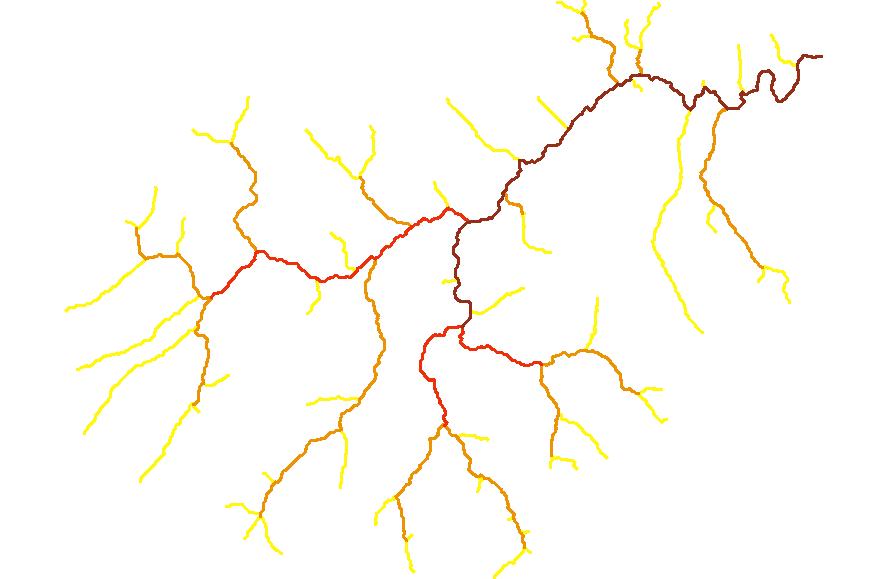
Note: This document is for an older version of GRASS GIS that is outdated. You should upgrade, and read the current addon manual page.

Consequently, the lowest leaf of each tree is identified as outlet. An auxiliary DEM is needed at this point.
Strahler ordering begins at each leaf of the tree with order N=1 (excluding the outlet). At a confluence, the order N(r) of the resulting stream is equal to the highest order N(max) of the joining streams or is raised by one if there are two or more joining streams of order N(max).
The algorithm returns an ASCII text file with columns: Category (from input map), Line (topology), Basin, Order; and the output map has the Strahler Order value instead of "category" for each line, and no connection with the database. See the also the diagrams in the documentation/ directory.

An example of the syntax in GRASS command line:
v.strahler input=esp_1@mapset output=esp_1 dem=dem_20@mapset \
txout=/home/mapset/esp_1 sloppy=0 layer=1
An extract from the resultant text file:
== Result of Strahler Order ==
Category: Line: Basin: Order:
22 1 1 4
73 2 1 1
25 3 1 4
27 4 1 4
39 5 1 1
48 6 1 1
56 7 1 4
55 8 1 2
88 9 1 4
59 10 1 1
60 11 1 1
61 12 1 2
83 13 1 2
82 14 1 1
91 15 1 1
87 16 1 4
95 17 1 2
96 18 1 1
106 19 1 1
102 20 1 1
104 21 1 4
111 22 1 1
112 23 1 3
121 24 1 3
126 25 1 1
128 26 1 3
137 27 1 3
The output map (vector on DEM) form a snapshot of GRASS display:


Last changed: $Date: 2013-01-26 09:22:08 -0800 (Sat, 26 Jan 2013) $
Main index - vector index - Full index
© 2003-2014 GRASS Development Team